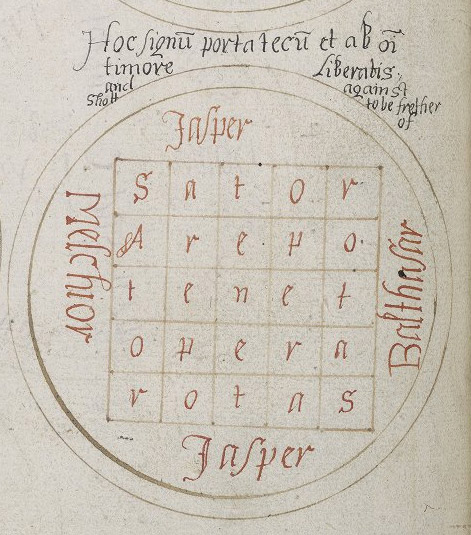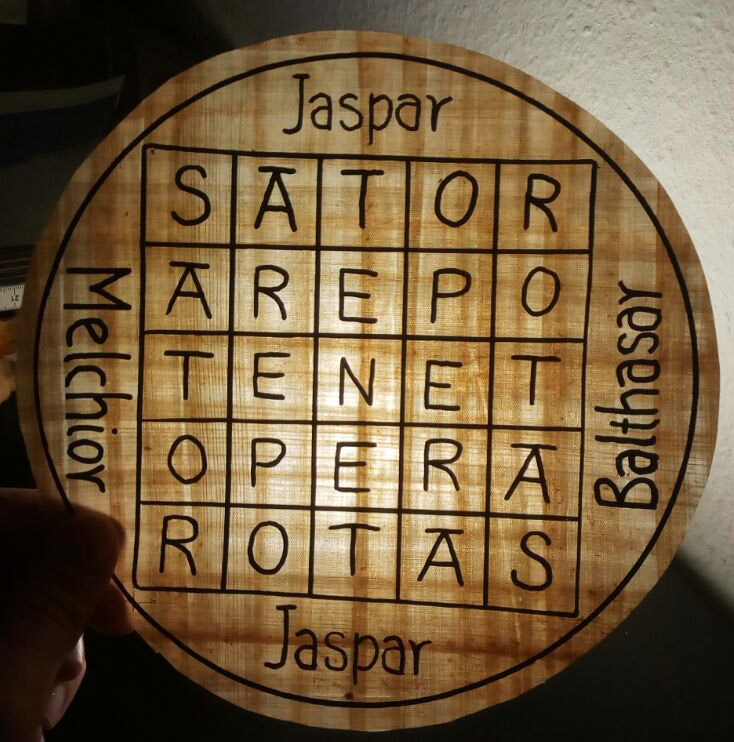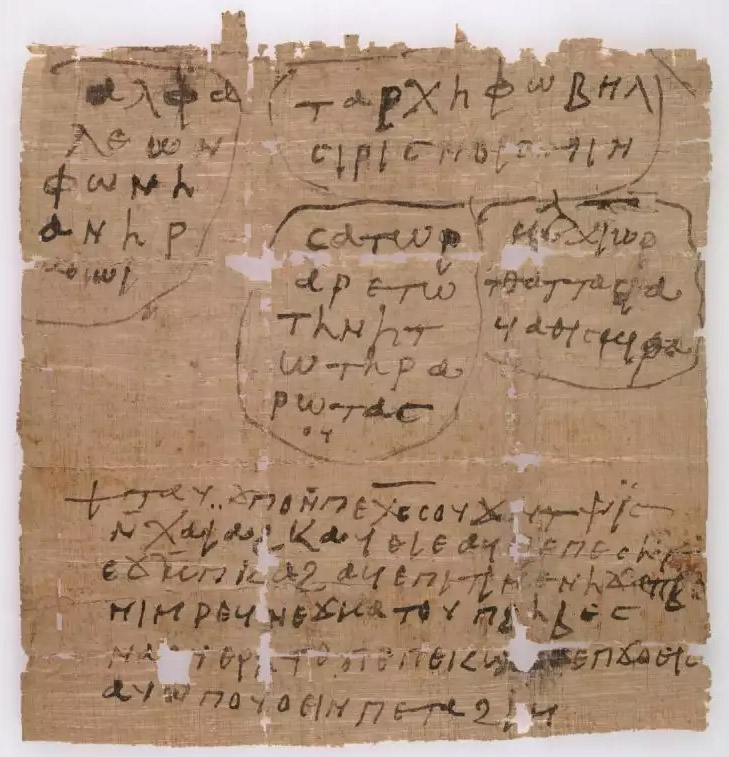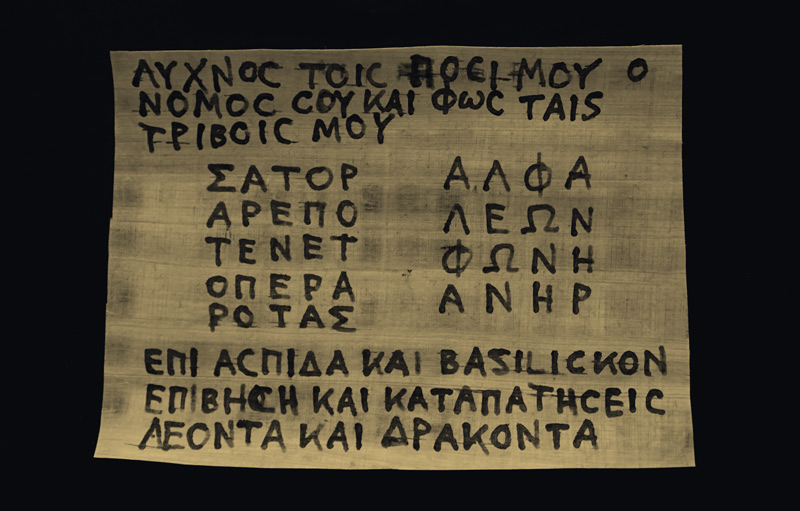(version 2.0 updated 6/01/2020)
The Three Magi, or Drei Könige as they are called here in Germany, were my favourite characters in the Christmas tale when I was a kid: their names seemed so foreign and exotic and hey: they followed a star and ended up being the first ones to visit baby Jesus and brought him gold and other stuff that I didn't even understand. Couldn't get any more magical than that for my taste.
My best memories of the Christmas season were from the times when my parents took us to the Canary Island of Fuerteventura. Not only could we spent the days playing naked on the beach while everyone back home was freezing, but also Christmas itself was very different: We just celebrated it in our small family circle without having to fulfill any grandparents', aunts' and uncles' expectations, no boring church visits, no carols we had to sing, and so on. I was looking forward to Epiphany during those holidays, because that's when the local Spanish kids received their presents delivered by the Three Magi. The Magi would come riding into town on real camels, tossing candies to the children awaiting them in awe and escorted by police cars playing "Feliz Navidad" from their megaphones!
Anyway, ever since I found myself on this magical journey I had rediscovered my interest in the Three Kings and had consecrated a piece of chalk on the last two annual Epiphany days to mark our house's door with the C + M + B initials for protection. Last year I was very excited to find out that Dr. Al Cummins has written a whole book on the Three Magi that also includes some practical chapters about devotional and magical items to make. Of course I had to have it...and gifted the book to myself as a Christmas present. This last Epiphany I found myself working all day on producing Three Kings Oil, Three Kings Chalk, and a protective talisman, as described in Al's book 1.
The most fascinating item for me covered in the book is a seal from the Folger Manuscript Vb.26 (aka. "Book of Oberon", pg. 372 2) that features the Three Magi's names and a SATOR square. The original manuscript's talisman description reads: "to be delivered from all fear, and against shot to be further off". In his book Dr. Al proposed it to also be used as a kind of magic circle or plate for objects to be consecrated in the Three Kings names 1.

Having never heard of a connection between the Three Magi and the SATOR square, I did a bit of research and found some intriguing bits of information: in a group of Byzantine churches from 900 CE in Cappadocia, mural decorations name the shepherds who came to adore the Christ-child as Sator, Arepo, Teneton, in another one Peratoras 3. According to a Byzantine bible of an earlier period 4 and also as reported by 16th century philologist Isaac Casaubon, the names Ator, Sator, and Peratoras were supposedly the names of the Three Magi 3.
Of course their alleged names have been many throughout the ages depending on who you asked: Apellus, Amerus, Damascus; Megalath, Galgalath, Saracin; Dionysius, Rusticus, Eleutherius; Enoch, Elijah, Melchidezek; Hôrmîzdah, Îzgarad, Perôzâdh; Bathezora, Melchior, Thaddias; and many more 3. As we know, the ones that have prevailed in the West were: Caspar, Melchior, and Balthasar. Nevertheless I had found a promising connection to the SATOR square.
In his book Dr. Al suggests to draw the seal on a plate in golden colour, which I also considered. But eventually I followed a gut-feeling and decided to draw it on a sheet of Egyptian papyrus instead. Iwas satisfied with the outcome:

The accompanying consecration ritual Dr. Al proposes includes burning three candles with the Magi's names carved into them and sprinkling circles of rue and hyssop around the square 1. I could not obtain any rue on the days before Epiphany and because I wanted it to be more "Middle Eastern" - to suit the papyrus vibe - I diverged from that, skipped the herbs and candles completely and went "full Egyptian" by burning incense instead: As a representation of the Three Magi I arranged three sticks of incense (Frankincense, Myrrh, Aloeswood) in a triangle formation in a bowl of Natron which I placed in front of a thick white candle, representing the star / Christ. I recited Psalm 72, Matthew 2:1-12, Psalms 51 and 22. The consecration of my Epiphany materia magica went really well and felt quite powerful.
Because it was also New Moon I did my monthly Stele of Jeu operation right after that, but with the slight variation of adding "Hear me and turn away this restraining spirit, in the names of Caspar Melchior and Balthasar" to the exorcism part. I had been a bit wary about even doing the Headless Rite because this New Moon was also a Solar Eclipse and the Sun conjunct Saturn, but after the whole day dedicated to the Three Magi I felt quite protected and empowered enough to do it anyways (the talisman that "delivered from fear"?).
Also, Epiphany coincided with the sun entering the headless / disk-headed Decan Kenmu, - a powerful synchronicity to the Eclipse near the headless south-node Ketu - it felt like the most auspicious headlessness moment, so I felt compelled to do it whatever it takes...also because of a powerful synchronicity that happened a few days before.
Synchronicity
The next day, a jaw-dropping synchronicity sent shivers down my spine when this blog post from the Coptic Magical Papyri research-project popped up in my Facebook feed about an Egyptian papyrus named "P. CtYBR inv. 1792" dated to the 6th or early 7th century CE that features several magical sequences, most promintently a SATOR SQUARE (!!!) in its center and next to that the Coptic names of the THREE MAGI (!!!): Melchior, Thaddias, and Bethezora! Below the magical sequences is written:
"+ Christ was born on the 29th of Khoiak. He came down upon the earth, and he rebuked all of the venomous crawling things. Your word is the lamp of my feet, oh Lord, and the light of my way."

Coincidence or not, I was left with the feeling that this was a confirmation of yesterday's work!
Update: Some months later I re-created the phylactery myself. Here are the instructions:
Use the SATOR and ALPHA-LEŌN magic square on papyrus. Optionally add the Coptic names of the Three Magi and/or the psalms below.
Σ Α Τ Ο Ρ
Α Ρ Ε Π Ο
Τ Ε Ν Ε Τ
Ο Π Ε Ρ Α
Ρ Ο Τ Α ΣΑ Λ Φ Α
Λ Ε Ω Ν
Φ Ω Ν Η
Α Ν Η ΡΜελχιωρ, Θαδδιας, Βαθηζωρα
(Melchiōr, Thaddias, Bathēzōra)
Λύχνος τοῖς ποσί μου ὁ νόμος σου καὶ φῶς ταῖς τρίβοις μου
(Psalm 118-105: Your word is the lamp of my feet, oh Lord, and the light of my way)
ἐπὶ ἀσπίδα καὶ βασιλίσκον ἐπιβήσῃ καὶ καταπατήσεις λέοντα καὶ δράκοντα
(Psalm 90-13Thou shalt tread on the asp and basilisk: and thou shalt trample on the lion and dragon)

Prayers to the Three Magi
These prayers are referenced in Dr. Al's book. They first one is a beautiful adoration and the second one a powerful petition. I dug up the originals and translated the second one also into German
Prayer of Epiphany
Latin original: En omnipotens astrorum conditor • Qui incar nationem tuam praeclari sideris testimonio indicasti • Quod uidentes magi oblatis maiestatem tuam muñe ribus adorauerunt • Propterea gratias agendo of feram tibi hostiam laudis ac deprecor concede mihi propitius ut in mea semper mente appareat stella iustitiae • et in tua confessione meus thesaurus sit domine mi iesu christe Amen 6
English: O Almighty Creator of the Heavens, who revealed thy incarnation by the testimony of a bright heavenly star, which seeing, the Magi adored thy Majesty with the offering of gifts: in thanksgiving therefore, I offer thee the sacrifice of praise and graciously beseech thee to grant to me that in my mind the star of righteousness may always appear, and that my treasure may be confessing thee, Lord Jesus Christ. Amen. 1
German: Oh allmächtiger Schöpfer des Himmels, der seine Menschwerdung durch das Zeugnis eines hellen himmlischen Sterns offenbarte, dem die Weisen durch Opfergaben Verehrung erwiesen, lasse in meinem Geist immer der Stern der Gerechtigkeit erscheinen und dass mein Schatz dich, Herr Jesus Christus, bekenne. Amen.
Je Vous Requer
Anglo-Norman original: Je vous requer, Jaspar, Melchior, e Baltazar, rois coronez, que Jesum alastes quere quant il fust né de la virge Marie, par icel douçour que vous vers ly ustes quant vous quere ly alastes, e pur cele joye que vous ustes quant ly trovastes e vos douns ly offristes, que vous me consilez de ce dont je vous requer sicome Dieu vous oy e vos offrendres resçust. Verroi Dieu, auxi come lur offrendres reçustes, recevez huy ma oreisoun pur lur amour; e auxi come l’estoille lur apparust en orient, que lur mena a vous al lu qu’il urent grantment desire, auxi, Sire Dieu, aemplez mon desir a leesse e joie. Otreiez moi que je puisse avoir e vere ce que mon cuer desyre, a la loenge Dieu e ma Dame seinte Marie. Amen. 7
English translation: I entreat you, Jaspar, Melchior, and Balthazar, crowned kings, who went to seek Jesus when he was born of the Virgin Mary, for that sweetness you felt toward him when you went to seek him, and for that joy you felt when you found him and offered him your gifts, that you advise me regarding that which I ask you inasmuch as God hears you and accepted your gifts. True God, as you accepted their gifts, may you accept today my prayer on account of their love; and as the star appeared to them in the east, which led them to you in the place they had so greatly desired, so too, Lord God, you filled my desire for gladness and joy. Grant me that I may have and behold what my heart desires, for the praise of God and my Lady Saint Mary. Amen. 7
German translation: Ich flehe Euch an, Caspar, Melchior und Balthasar, gekrönte Könige, die sich zu Jesus begaben, als er von der Jungfrau Maria geboren wurde, bei der Süße, die Ihr ihm gegenüber empfandet, als Ihr ihn aufsuchtet, und bei Eurer Freude, als Ihr ihn fandet und ihm Eure Gaben darbrachtet, mir Rat zu geben hinsichtlich dem, was ich Euch frage, genauso wie Gott Euch anhört und Eure Gaben annahm. Wahrer Gott, wie Du ihre Gaben entgegennahmst, so mögst Du heute mein Gebet ob ihrer Liebe annehmen. Und wie ihnen der Stern im Osten erschien, der sie zu Dir an den Ort führte, nach dem sie sich so sehr sehnten, genau so erfülle mir, Herr Gott, auch mein Verlangen nach Fröhlichkeit und Wonne. Gewähre mir, dass ich bekommen und erblicken werde, was mein Herz begehrt, beim Lob Gottes und meiner heiligen Jungfrau Maria.
Coptic Hymn
This unique Coptic hymn is said during the Paramoun of the Nativity feast. An analysis of the hymn reveals unique characteristics. This hymn is one of the few hymns in the Coptic Church that has no translation. The unique usage of Greek, Bohairic and Sahidic Coptic suggests that the hymn was written in Upper Egypt in Late Sahidic.5
Yestermeje
Coptic: ⲓⲥⲑⲉⲣⲙⲉⲅⲓ ⲁϥⲉⲛⲉ: ⲫⲁⲥⲓⲗⲉⲟⲥ ⲫⲣⲟⲓ ⲁⲛⲟⲛ: ⲕⲉⲕⲁⲡⲡⲉⲥⲓ ⲉⲫⲏⲗⲉ: ⲇⲉⲩⲇⲉ ⲡⲣⲟⲥⲕⲉⲛⲓⲥⲟⲙⲉⲛ: ⲇⲉⲩⲇⲉ ⲥⲑⲓⲛⲧⲁⲉⲡⲁⲅⲓⲥ.
ⲃⲁⲝⲓⲟ ⲃⲁⲫⲟⲛϩ ⲉⲛⲓⲙⲁⲅⲟⲥ: ⲡⲉⲣⲣⲟⲩ ⲉⲧϩⲏⲧ ⲛⲛⲓⲉⲛⲉϩ: ⲉⲛⲓⲫⲩⲗⲏ ⲧⲏⲣⲟⲩ ⲙⲡⲕⲁϩⲓ: ⲉⲛⲁⲓ ⲧⲏⲣⲉⲛ ⲧⲉⲛⲟⲩⲱϣⲧ: ⲙⲡⲉⲛⲧⲁⲩⲙⲁⲥϥ ⲉⲧϣⲉⲡⲙⲕⲁϩ.
ⲫⲗⲉⲡⲓ ⲙⲁⲅⲟⲥ ⲇⲉ ⲑⲁⲩⲙⲉ: ⲍⲱⲓ ⲛⲉⲛⲓ ⲉⲧⲁⲉⲗⲗⲟⲥⲁ (ⲉⲧⲉⲉⲗⲗⲟⲥⲁ): ⲉⲛⲓⲙⲁⲅⲟⲥ ⲁⲩⲧⲁⲥϣⲟⲩⲣⲉ (ⲉⲩⲧⲁⲥϣⲟⲩⲣⲉ): ⲑⲉⲟⲛⲁⲛ ⲙⲙⲟⲛ ⲛⲧⲁⲥ ⲉⲡⲉ: ⲕⲉ ⲛⲛⲁⲕⲝⲁⲥⲓ (ⲛⲛⲁⲕⲝⲱⲥⲓ) ⲁϫⲓⲁ.
ⲛⲓⲙⲁⲅⲟⲥ ϫⲟⲩϣⲧ ⲉⲛⲓϣⲫⲏⲣⲓ: ⲉⲫⲟⲛϩ ⲛⲛⲁⲩ ⲉⲧⲁⲩ ϯⲱⲟⲩ: ⲉⲛⲓⲙⲁⲅⲟⲥ ⲛⲛⲁⲩⲇⲱⲣⲟⲛ: ⲉⲩϩⲱⲥ ⲙⲫⲛⲟⲩϯ ⲡⲉⲛⲧⲉⲃⲉⲧϫⲫⲟϥ: ⲧϣⲉⲡⲉⲟⲩⲛⲁⲕ ⲡⲉⲧⲉⲛⲧⲟⲩⲁⲓ.
ⲓⲧⲟⲩⲡⲁⲣⲑⲉⲛⲟⲥ ⲧⲉⲕⲁⲩⲥⲁ: ⲕⲉⲏⲑⲏⲟⲩ ⲛⲛⲁⲛⲧⲣⲟⲡⲓⲥ: ⲗⲟⲅⲟⲥ :ⲉⲟⲥ ⲉⲛⲓⲫⲩⲗⲏ: ⲙⲁⲑⲁⲑⲟⲛ ⲙⲩⲥⲧⲏⲣⲓⲟⲛ: ⲑⲟⲛⲧⲟⲕⲟⲧⲟⲩ ⲉⲙⲙⲁⲛⲟⲩⲏⲗ.
ⲁⲥⲓϯ ⲡⲁⲣⲑⲉⲛⲟⲥ ⲛⲧⲉ ⲡⲁⲥ ⲛϣⲱⲡⲉ: ⲁϥⲟϫ ⲙⲡⲉⲛⲛⲟⲧⲉⲛ ⲧⲉϥⲛⲣⲟⲙⲁ (ⲧⲉϥⲛⲣⲟⲙⲉ): ⲁⲩⲫⲛⲟⲩⲧⲉ ⲁϥϣⲁⲛⲟⲩⲟⲛ: ϫⲉ ⲙⲙⲩⲥⲧⲏⲣⲓⲟⲛ: ⲡⲉⲛⲉⲧϣⲡⲱ ⲛⲉⲙⲙⲁⲛⲟⲩⲏⲗ.
ⲛⲁϭⲟⲓⲥ ⲕⲩⲣⲓⲟⲥ ⲕⲉ ⲓⲡⲟⲙⲉⲛⲓ: ⲓⲛⲉ (ⲓⲛⲁ) ⲛⲧⲟⲩ ⲑⲁⲩⲙⲁⲑⲁⲑⲟ: ⲱⲟⲩ ⲙⲫⲟⲟⲩ ⲁⲩⲗⲁⲕⲥⲁⲩⲧⲏⲥ (ⲁⲩⲗⲁⲕⲥⲉⲩⲧⲏⲥ): ⲡⲁⲥⲟⲓ ⲉⲛⲓⲫⲏⲗⲉ ⲧⲉⲥⲧⲏⲥ: ⲙⲁⲣⲉⲛⲙⲁⲕⲁⲣⲓⲍⲟⲙⲉⲛ ⲁⲩⲧⲟⲩ (ⲉⲩⲧⲟⲩ).
ⲃⲣⲡ (ⲃⲱⲣⲡ) ⲡⲛⲉⲩⲙⲁⲧⲁ ⲡⲉⲛⲧⲁϥϣⲱⲡⲉ: ⲱϣ ⲙⲙⲟϥⲡⲉ ⲡⲓⲑⲁⲩⲙⲁ: ⲡⲁⲛⲧⲁϥⲱϣ ⲟⲩⲟϩ ⲛqⲏⲧϥ: ⲱⲛⲓⲇⲉⲗⲉ ⲧⲏⲣⲟⲩ ⲙⲡⲕⲁϩⲓ: ⲙⲁⲣⲉⲛ ⲙⲁⲕⲁⲣⲓⲍⲓⲛ ⲙⲙⲟⲥ.
ⲣⲉϥⲧⲟⲥ ⲛⲧⲟⲩ ⲁⲁⲣⲟⲛ: ⲥⲉⲛⲧⲟⲩ ⲁⲅⲉⲛⲛⲉⲧⲟⲩ (ⲉⲅⲉⲛⲛⲉⲧⲟⲩ): ⲧⲉⲛⲛⲉⲥⲕⲗⲓⲑⲟⲥ ⲁⲗⲱⲥⲱ (ⲉⲗⲱⲥⲱ): ⲉⲡⲉⲛ ⲧⲟⲛϥⲣⲉⲟⲛ: ⲧⲁⲩⲧⲉ (ⲧⲟⲩⲧⲉ) ⲡⲣⲟⲥ ⲕⲉⲛⲓⲥⲱⲙⲉⲛ.
ⲧϣⲉⲣⲟϥ (ⲧϣⲁⲣⲟϥ) ⲛϩⲁⲛϫⲓϫ ⲛⲁⲁⲣⲟⲛ: ⲟⲩϣⲫⲏⲣⲓ ⲙⲡⲛⲉⲩⲙⲁ ⲛⲁϥⲕⲗⲁⲑⲟⲥ (ⲛⲁϥⲕⲗⲉⲑⲟⲥ): ⲙⲃⲉⲣⲣⲉⲡⲓ ⲣⲉϥϯϩⲟ: ⲧⲉⲛⲓⲙⲁⲅⲟⲥ ⲛϩⲉⲃⲣⲓⲟⲥ (ⲛϩⲁⲃⲣⲓⲟⲥ): ⲁⲙⲟⲓ ⲧⲉⲛⲧⲏⲣⲉⲛ ⲛⲧⲉⲛⲟⲩⲱϣⲧ.
ⲫⲟⲥ ⲁⲕϥⲟⲑⲉⲥ ⲉⲛⲓⲧⲉⲗⲉⲛ: ⲕⲉⲣⲁⲛ ⲡⲉⲡⲗⲓⲣⲓⲑⲓⲙⲁ: ⲧⲥⲁⲗⲗⲁⲧⲉⲥ ⲙⲁⲧⲉⲙⲁⲅⲟⲥ: ⲟⲩⲉⲡⲟⲩⲧⲉⲛ ⲡⲓⲥⲧⲉⲩⲥⲱⲙⲉⲛ: ϯⲙⲡⲉⲣⲣⲟⲥⲓⲁ ⲛⲧⲉ ⲟⲩⲣⲓⲥⲧⲟⲩ.
ⲡⲓⲟⲩⲱⲓⲛⲓ ⲉⲃⲟⲗqⲉⲛ ⲡⲓⲟⲩⲱⲓⲛⲓ: ⲁϥⲙⲟϩ ⲧⲏⲣⲉⲛ ⲛⲣⲉϣⲁ: ⲛⲁⲣⲓⲁⲗⲓⲛ ⲱ ⲛⲓⲙⲁⲅⲟⲥ: ⲁⲛⲓⲁⲑⲛⲁϩⲧⲉ ⲙⲁⲣⲉⲛⲛⲉϩⲧⲉ: ⲉⲑⲃⲉ ⲡϫⲓⲛⲓ ⲙⲡⲓⲣⲓⲥⲧⲟⲥ.5
Coptic Transliteration: isthermegi afene: phasileos phroi anon: kekappesi ephêle: deude proskenisomen: deude sthintaepagis.
baksio baphonh enimagos: perrou ethêt nnieneh: eniphulê têrou mpkahi: enai têren tenouôšt: mpentaumasf etšepmkah.
phlepi magos de thaume: zôi neni etaellosa (eteellosa): enimagos autasšoure (eutasšoure): theonan mmon ntas epe: ke nnakksasi (nnakksôsi) ajia.
nimagos joušt enišphêri: ephonh nnau etau tiôou: enimagos nnaudôron: euhôs mphnouti pentebetjphof: tšepeounak petentouai.
itouparthenos tekausa: keêthêou nnantropis: logos :eos eniphulê: mathathon mustêrion: thontokotou emmanouêl.
asiti parthenos nte pas nšôpe: afoj mpennoten tefnroma (tefnrome): auphnoute afšanouon: je mmustêrion: penetšpô nemmanouêl.
nacois kurios ke ipomeni: ine (ina) ntou thaumathatho: ôou mphoou aulaksautês (aulakseutês): pasoi eniphêle testês: marenmakarizomen autou (eutou).
brp (bôrp) pneumata pentafšôpe: ôš mmofpe pithauma: pantafôš ouoh nqêtf: ônidele têrou mpkahi: maren makarizin mmos.
reftos ntou aaron: sentou agennetou (egennetou): tennesklithos alôsô (elôsô): epen tonfreon: taute (toute) pros kenisômen.
tšerof (tšarof) nhanjij naaron: oušphêri mpneuma nafklathos (nafklethos): mberrepi reftiho: tenimagos nhebrios (nhabrios): amoi tentêren ntenouôšt.
phos akfothes enitelen: keran peplirithima: tsallates matemagos: ouepouten pisteusômen: timperrosia nte ouristou.
piouôini ebolqen piouôini: afmoh têren nreša: narialin ô nimagos: aniathnahte marennehte: ethbe pjini mpiristos.
English Translation: In the summer, the Magi offered the king understanding and worship. Come worship. Come sing strong.
Worthily, the Magi forever changed the hearts of all the tribes of the earth. These, and us all, worship Him who was born and who suffered.
The Magi looked. Truly the Living made the Magi speechless when He became God. There is no reed mat worthy of the holiness.
The Magi saw the signs revealed to them when they glorified. The Magi offered their gifts praising God who was born, who received them and whom we glorify.
And a virgin, (gave birth?) to the Incarnate Word of God. The tribes were instructed of the mystery of the Theotokos of Emmanuel.
The Ancient Being came to the virgin. She gave birth to our Mighty God. God revealed the mystery of Emmanuel that was set in motion
My Lord, the patient Lord, the Physician of wondrous glory - today He lowered himself to the tribes. Come let us bless (Him) with them.
Send the spirit (of the Magi) that came to proclaim Him. And (that) truth that was proclaimed is in Him. All you tribes of the earth, let us bless Him."
The Rod of Aaron (blossomed and gave?) birth (while also?) destroying (the unbelief?) of our hearts. Come, worship.
The censer in Aaron's hands is a spiritual sign. Its new branches are the Hebrew inquirers, the Magi, All of us come to worship.
The Light from Light has filled us all with joy. Sing O Magi. The unbelievers - let them believe because of the Coming of Christ.5
-
Cummins, Alexander. A Book of the Magi. Revelore Press. 2018 ↩↩↩↩
-
Harms, Daniel; Clark, James R.; Peterson, Joseph H. The Book of Oberon - A Sourcebook of Elizabethan Magic. Lewellyn. 2015 ↩
-
Bruce Manning Metzger. New Testament Studies: Philological, Versional, and Patristic. No 10. Ch. 2: Names for the Nameless in the New Testament ↩↩↩
-
Fishwick, Duncan. An Early Christian Cryptogram? CCHA, Report, 26 (1959), 29-41 ↩
-
Ghaly, George. Communion Hymn - Yestermeje (preliminary translation). December 29, 2004, Tasbeha.org ↩↩↩
-
Kuypers, Arthur Benedict (ed.). The prayer book of Aedeluald the bishop: commonly called the Book of Cerne. University Press, Ann Arbor, Mich., 1902. pg. 139 ↩
-
Greer Fein, Susanna (ed.), Je vous requer, Jaspar, Melchior, e Baltazar, The Complete Harley 2253 Manuscript, Volume 3 2015, Art. 108a ↩↩
